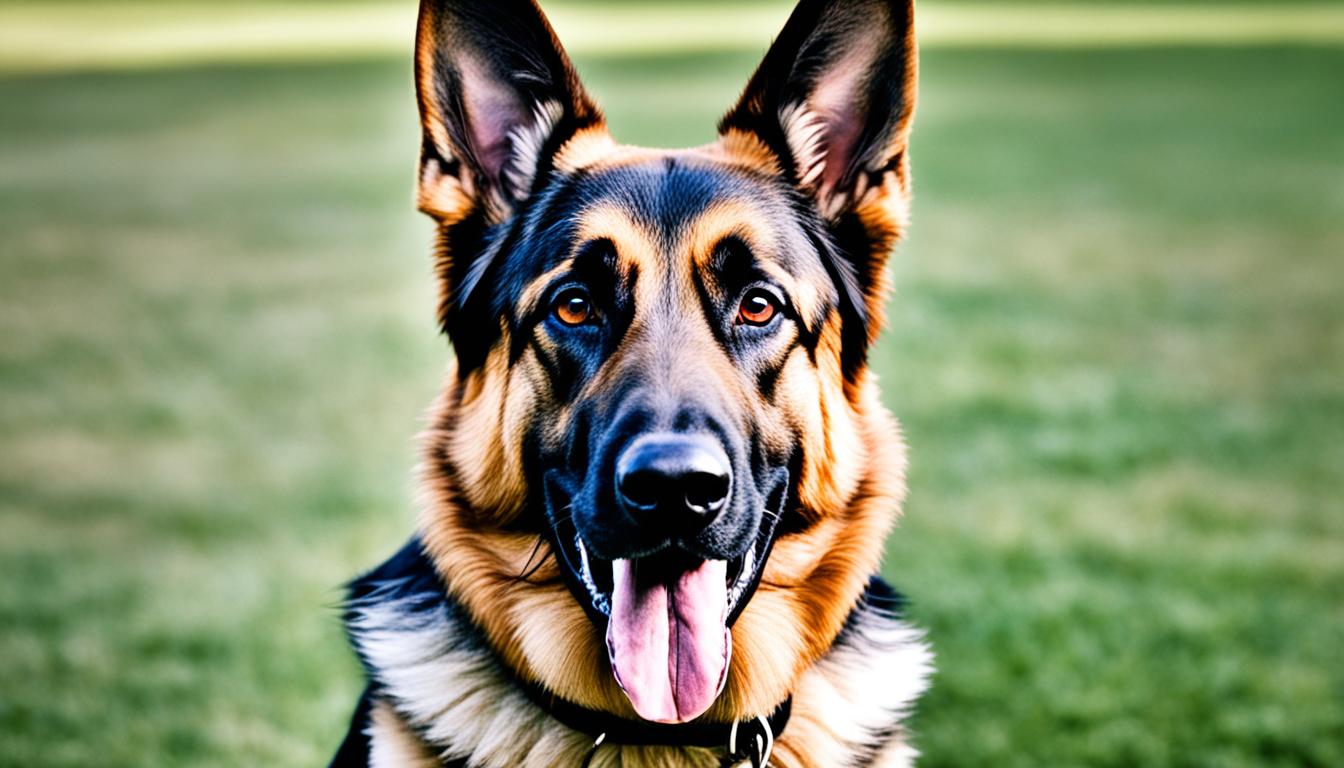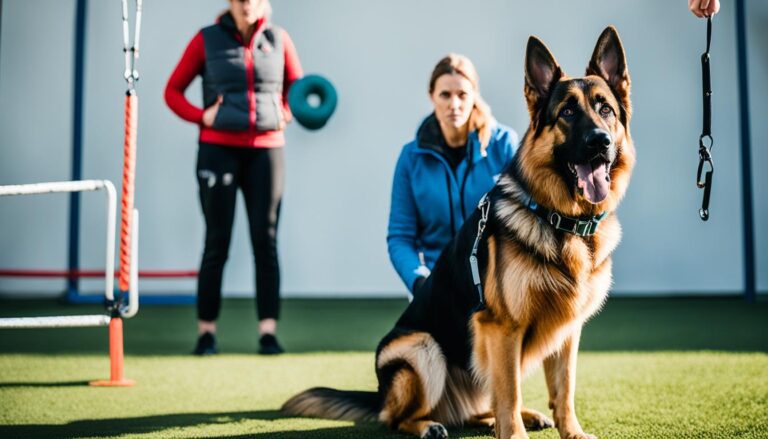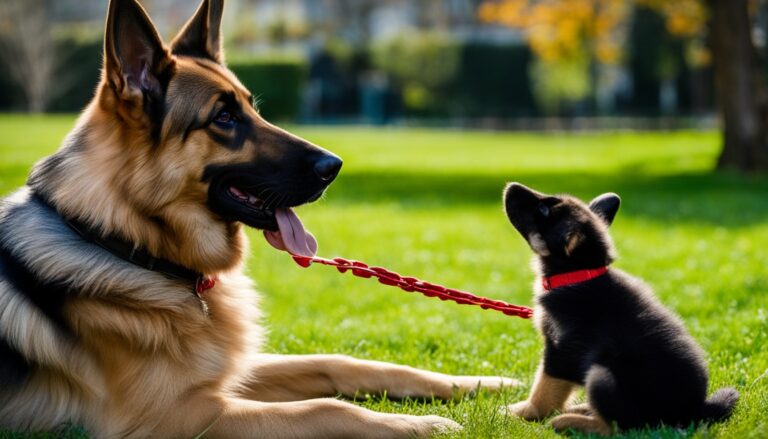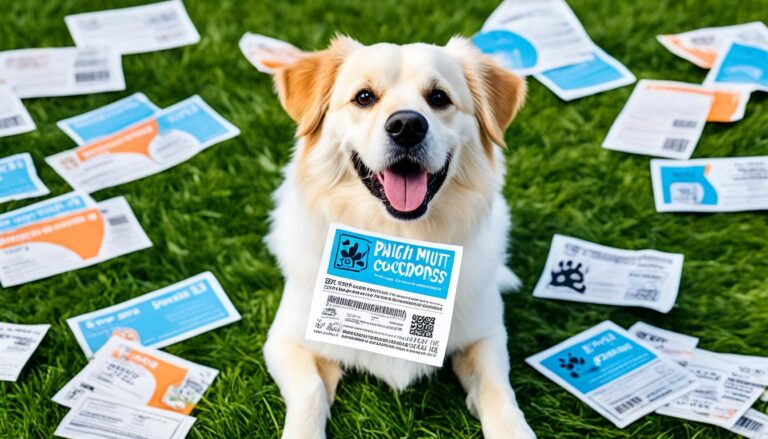Understanding German Shepherd Whining Sounds
Did you know that German Shepherds are known for their expressive vocalizations, including whining sounds? These intelligent and loyal dogs have developed a unique way of communicating their emotions and needs through whining. Whether it’s a soft whimper or a loud cry, their whining behavior can indicate various underlying factors that every German Shepherd owner should understand.
In this article, we will explore the reasons why German Shepherds whine and provide strategies to address this behavior. From whining due to fear or anxiety to seeking attention and comfort, understanding the whining behavior of your German Shepherd will help you build a strong bond and ensure their well-being.
Reasons Why German Shepherds Whine
German Shepherds are known for their expressive nature, and whining is one of the ways they communicate. Understanding why your German Shepherd whines can help you address their needs effectively. Here are some common reasons why German Shepherds whine:
- Fear or Anxiety: German Shepherds may whine when they feel afraid or anxious about something in their environment.
- Alerting Humans: Your German Shepherd might whine to get your attention or alert you to potential dangers or intruders.
- Seeking Attention: If your German Shepherd wants your attention or desires something, they may resort to whining to get it.
- Excitement: German Shepherds may whine when they’re feeling excited or anticipating something enjoyable.
- Seeking Comfort: When German Shepherds are feeling uncomfortable, such as when they’re too hot or cold, they may whine to express their discomfort.
- Communicating with Other Dogs: Whining is a way for German Shepherds to communicate with other dogs, expressing various emotions or intentions.
- Separation Anxiety: If your German Shepherd experiences separation anxiety, they may whine when they’re left alone or separated from their loved ones.
- Boredom or Loneliness: Whining can be a sign of boredom or loneliness in German Shepherds, especially when they lack mental and physical stimulation.
- Pain or Discomfort: German Shepherds may whine if they’re experiencing pain or discomfort due to an injury, illness, or other physical issues.
- Puppies Whining: Puppies use whining as a form of communication to express their needs, such as hunger, thirst, or the need to go outside.
Identifying the specific reason behind your German Shepherd’s excessive whining is crucial in order to address it effectively and provide appropriate solutions.
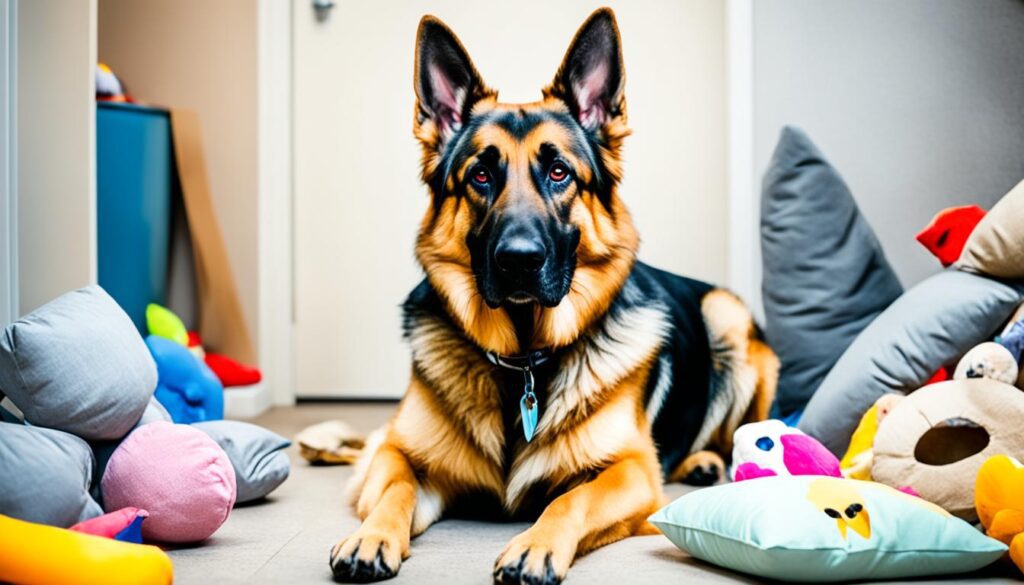
Strategies to Address German Shepherd Whining
When it comes to addressing German Shepherd whining, there are several effective strategies you can try. By understanding the underlying causes and implementing appropriate techniques, you can help your German Shepherd overcome this behavior. Whether your dog whines at night or during training, we’ve got you covered. Here’s what you can do:
1. Identify and Address Fear or Anxiety
If your German Shepherd whines out of fear or anxiety, it’s essential to identify the source of their distress. Isolate any triggers that may be making your dog anxious and work on desensitization techniques. Providing a safe and secure environment for your dog can help alleviate their anxiety. If the whining persists, consider seeking professional help to address these underlying issues.
2. Manage Attention-Seeking Behavior
German Shepherds are intelligent and sociable animals and may resort to whining to get attention. However, it’s crucial not to give in to the whining. Instead, wait for your dog to calm down and become quiet before providing them with attention. This reinforces the desired behavior of staying calm and discourages attention-seeking whining.
3. Provide Mental and Physical Stimulation
Boredom and loneliness can also contribute to German Shepherd whining. Ensure your dog receives enough mental and physical stimulation through interactive toys, puzzle games, and regular exercise. Engaging activities can help alleviate their restlessness and prevent excessive whining.
4. Establish a Consistent Bedtime Routine
If your German Shepherd whines at night, it’s crucial to establish a consistent bedtime routine. Create a calm and comfortable sleeping environment for your dog, ensuring a comfortable bed and a quiet room. Stick to the routine, and over time, your German Shepherd will learn to associate bedtime with relaxation, reducing whining at night.
5. Be Patient and Consistent During Training
During training sessions, it’s important to remain patient and consistent. Use positive reinforcement techniques such as treats and praise to encourage desired behaviors and discourage whining. With time and persistence, your German Shepherd will learn to respond positively to training and minimize whining during these sessions.
By implementing these strategies, you can address German Shepherd whining and foster a healthier and more harmonious relationship with your beloved pet.
Conclusion
German Shepherd whining is a common behavior that many owners face, but it can be managed and reduced with the right approach. By understanding the reasons behind their whining and implementing appropriate strategies, we can create a harmonious living environment for both our furry friends and ourselves.
First and foremost, it’s important to provide a safe and secure environment for our German Shepherds. This means identifying and addressing any sources of anxiety or fear that may be triggering their whining. Creating a calm and comfortable space for them will help alleviate their stress and reduce whining behavior.
In addition, it’s crucial to give attention to our German Shepherds only when they are calm and quiet. By reinforcing calm behavior rather than reacting to their whining, we can teach them that whining will not get them the attention they seek. Consistency is key in this training process.
Furthermore, mental and physical stimulation are vital in managing German Shepherd whining. Boredom and loneliness can often be underlying factors, so providing plenty of exercise, playtime, and interactive toys will keep them entertained and engaged. This will not only reduce whining but also contribute to their overall well-being.
Lastly, positive reinforcement during training is essential. By rewarding desired behaviors and ignoring or redirecting whining, we can teach our German Shepherds what is expected of them. Patience and consistency are crucial in this process, as it may take time for them to learn the new behaviors.
Overall, by understanding our German Shepherds’ needs and using effective training techniques, we can build a strong bond with them while minimizing whining. With patience, consistency, and love, we can create a peaceful and joyful living environment for both ourselves and our loyal companions.
FAQ
Why do German Shepherds whine?
German Shepherds may whine to express their emotions or needs, such as fear, excitement, hunger, or attention. Whining can also be a sign of anxiety, insecurity, or a way to communicate with other dogs.
What are the common reasons for German Shepherd whining?
Common reasons for German Shepherd whining include fear or anxiety, alerting humans of danger, seeking attention, showing excitement, seeking comfort, experiencing separation anxiety, feeling bored or lonely, experiencing pain or discomfort, and puppies whining as a form of communication.
How can I address German Shepherd whining?
To address German Shepherd whining, it is important to identify the specific reason for the whining and implement appropriate strategies. This may include addressing the source of anxiety, providing a secure environment, managing attention-seeking behaviors, providing mental and physical stimulation, establishing consistent routines, and using positive reinforcement techniques during training.
How do I stop my German Shepherd from whining at night?
To address nighttime whining, consider establishing a consistent bedtime routine, providing a comfortable sleeping environment, and ensuring your German Shepherd gets enough exercise during the day. It may also be helpful to avoid reinforcing the whining behavior by ignoring the whining and providing attention only when the dog is quiet and calm.
What should I do if my German Shepherd whines excessively during training?
Excessive whining during training may be a sign of frustration, anxiety, or confusion. It is important to be patient, use positive reinforcement techniques, and break the training sessions into small, manageable steps. Seeking the assistance of a professional dog trainer can also be beneficial in addressing whining during training.

